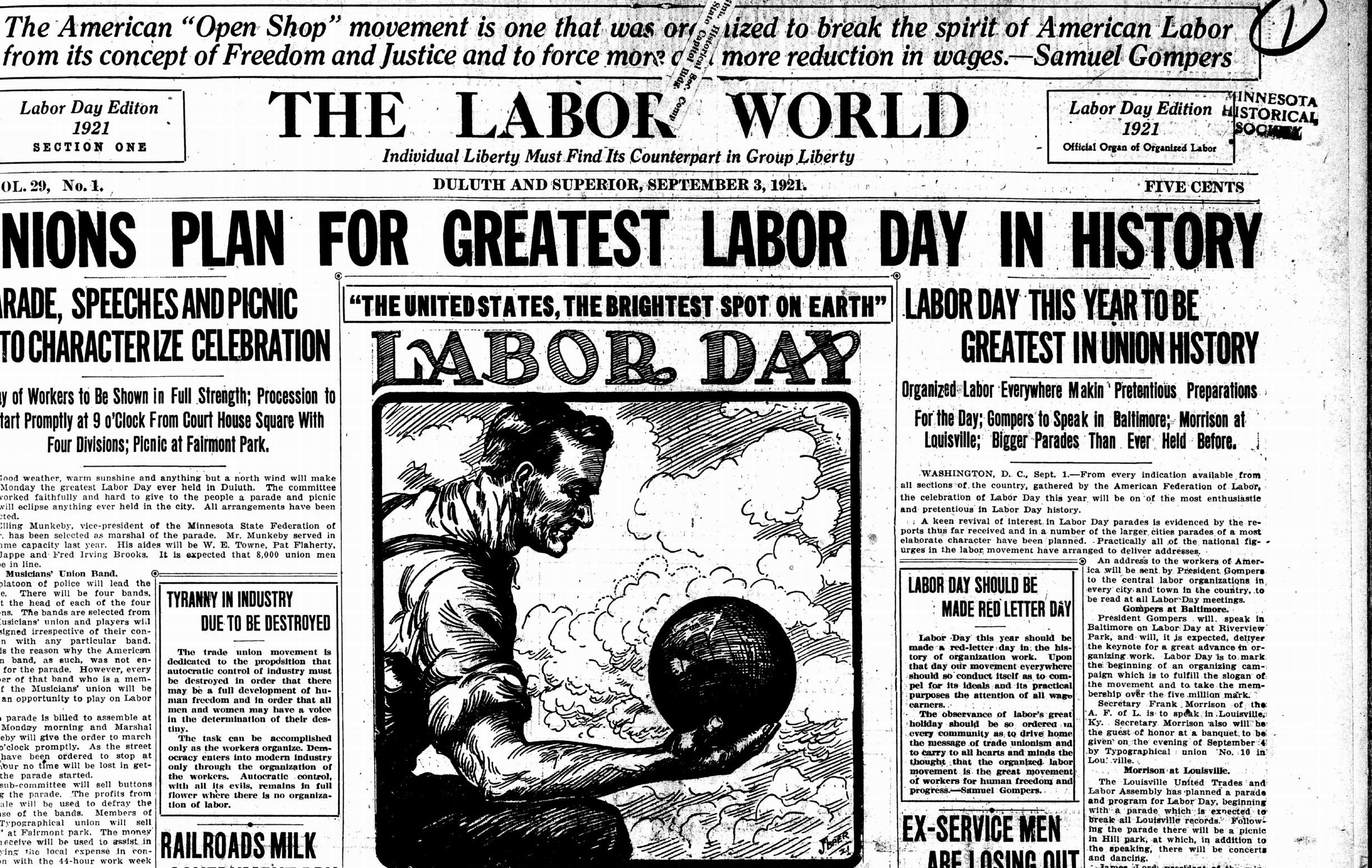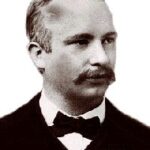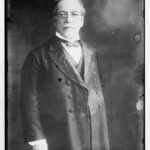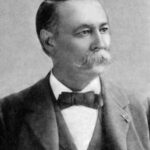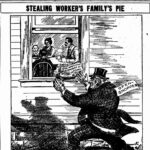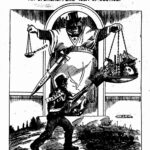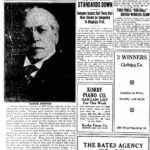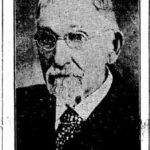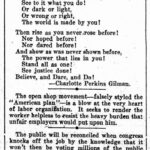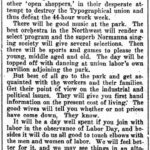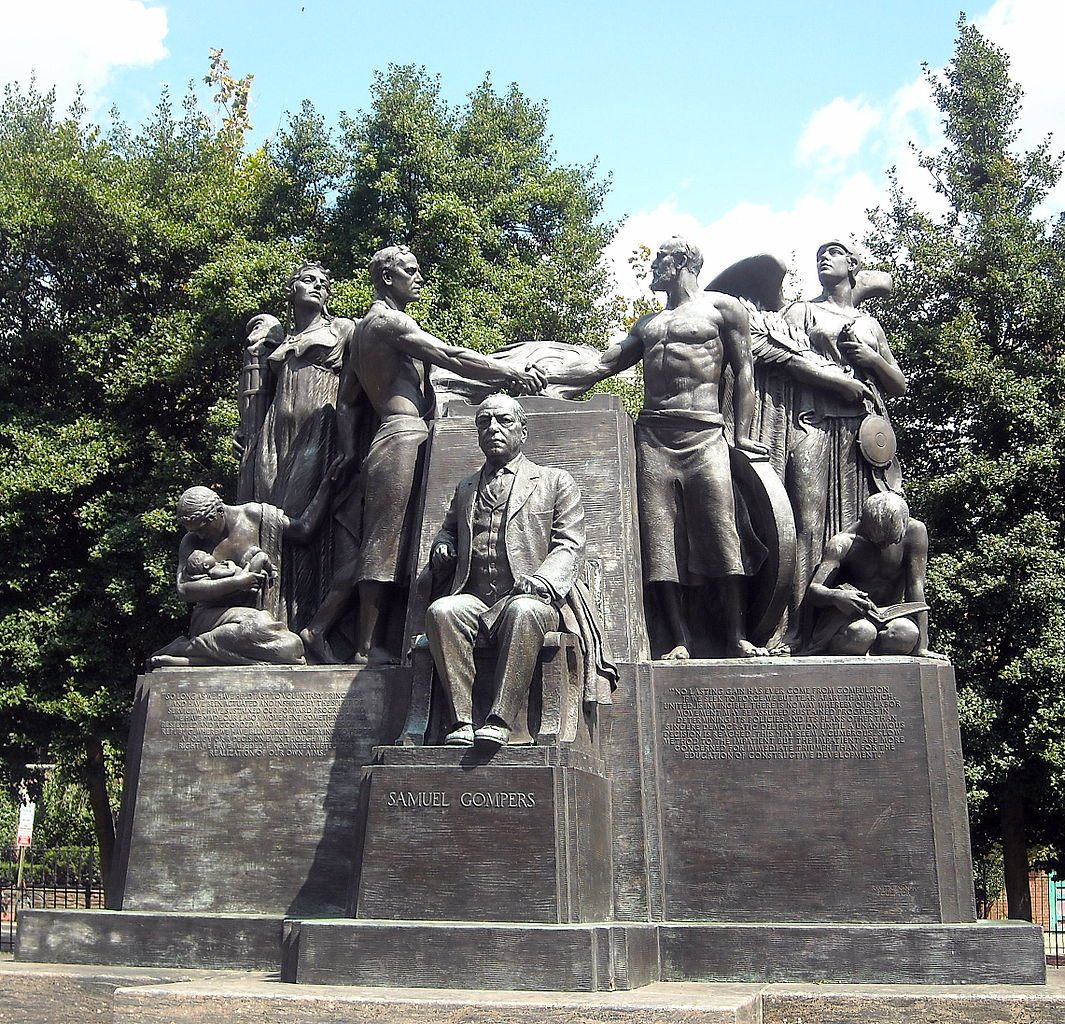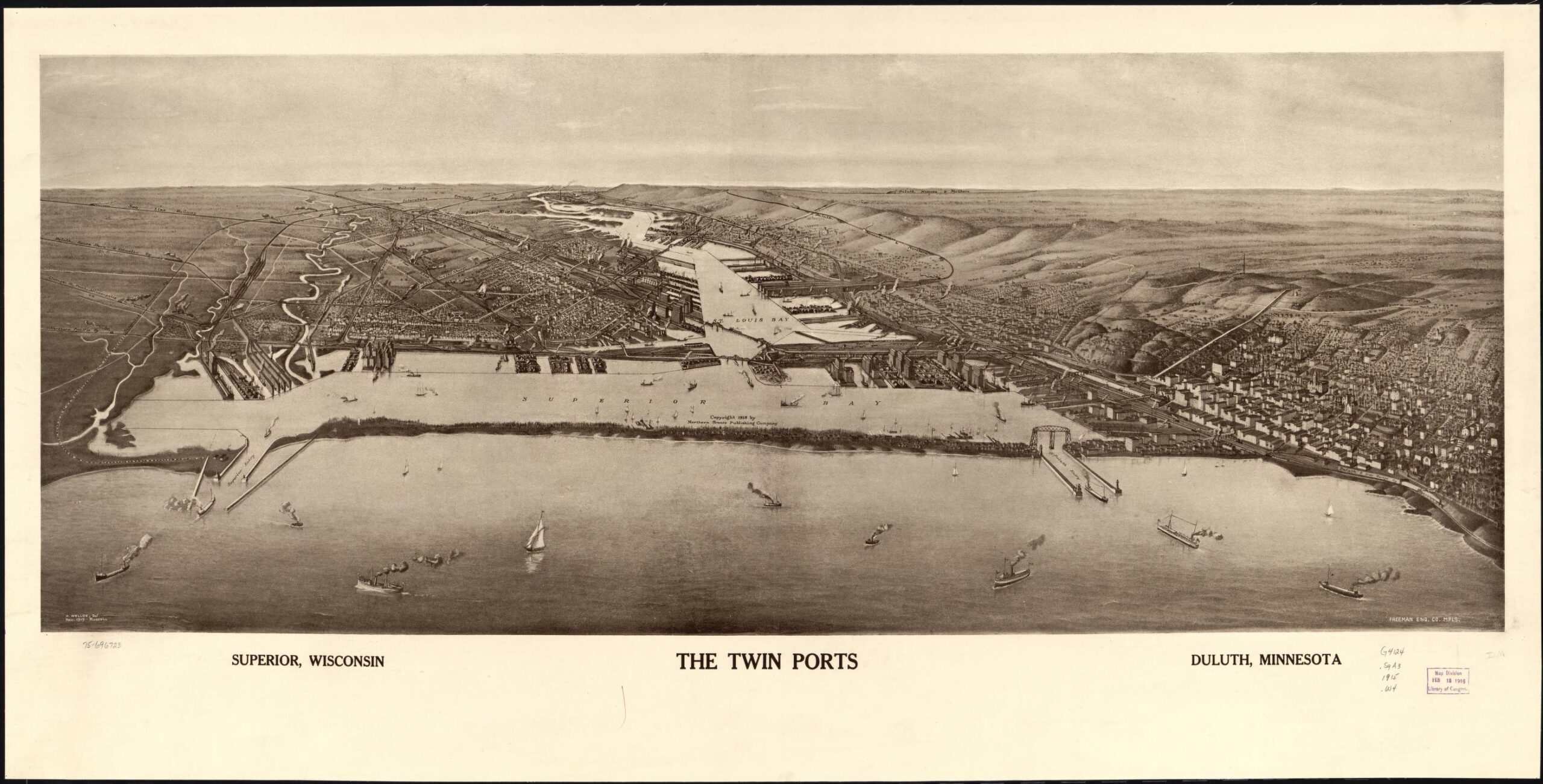Recently, when I was searching the Library of Congress for “Labor Day,” the September 3, 1921 issue of The Labor World caught my attention. The paper headlined the ‘greatest Labor Day in history;’ and the masthead mentioned Duluth, Minnesota and Superior, Wisconsin, the Twin Ports, way out at the end of the Great Lakes system. I remember reading about Samuel Gompers in high school social studies (I think) – the first president of the American Federation of Labor was featured in several stories in the newspaper.
It was a big newspaper for a big Labor Day. Most issues of The Labor World were six pages at the time. The September 3rd issue was thirty-six pages full of articles, cartoons, and advertisements. A couple topics were the large number of unemployed World War I veterans and the paper’s opposition to open shops. The opinion page included a history of the holiday (image 36 at the Library of Congress) – Labor had to labor to get the holiday:
History of Labor Day
Labor Day, 1921, is the twenty-seventh annual celebration of Labor Day as a legal national holiday.
The history of Labor Day is significant of the increasing strength and progress or [sic] organized labor.
Labor Day evolved from the aspiration of the labor movement; it was-not handed down as a present. Its recognition as a legal holiday was won by labor; it was not given to labor.
The united voluntary efforts of the workers themselves established Labor Day as a national holiday long before any state legislature or the national legislature enacted the custom into statute law.
But the history of the statute law is in itself significant; it indicates the ever-increasing influence of the economic organizations of labor over the deliberations of law-makers.
The Labor Day idea was originated by P. J. McGuire, for many years first vice-president of the American Federation of Labor.
At a meeting of the New York City central labor union, held on May 8, 1882, McGuire urged the propriety of setting aside one day in the year as a general holiday for the laboring people. He suggested that it be called “Labor Day.”
The idea was adopted by the central labor union, and it staged a Labor Day parade and festival on the first Monday in September, 1882.
The A. F. of L. endorsed the national Labor Day holiday at its 1884 convention, held at Chicago.
The convention unanimously adopted the following resolution, introduced by A. C. Cameron, delegate from the Chicago trades and labor allianace [sic]:
“Resolved, That the first Monday in September of each year be set apart as a laborers’ national holiday, and that we recommend its observance by all wage workers, irrespective of sex, calling, or nationality.”
Through the activity of the state federations of labor and the central labor bodies the Labor Day demand spread from city to city and state to state.
Many municipal councils and state legislatures made it a legal holiday.
Oregon was the first state to accede to labor’s demand that Labor Day be made a state holiday. The Oregon Labor Day law was signed by the governor on February 21, 1887. The legislatures of Colorado, Massachusetts, New Jersey and New York also made Labor Day a state holiday in 1887. Connecticut, Nebraska and Pennsylvania followed in 1889; Iowa and Ohio in 1890; Georgia, Illinois, Indiana, Kansas, Maine, Montana, New Hampshire, South Carolina, Tennessee and Washington in 1891; Alabama, Louisiana, Utah and Virginia, in 1892, and California, Delaware, Florida, Minnesota, Rhode Island, Texas and Wisconsin in 1893.
In the meantime A. F. of L. officials sought congressional legislation to make Labor Day a legal holiday, in conformity with the resolution of the 1884 convention. The bill became a law ten years later. It passed congress on June 28, 1894.
On June 29,1893 [sic], President Cleveland signed the Labor Day law in the presence of Amps [Amos?] J. Cummings, representtive [sic] in congerss [sic] from
New York city. Mr. Cummings presented the pen and penholder used by President Cleveland to President Gompers.
In his annual report to the 1894 A. F. of L. convention President Gompers said:
“National Labor Day—It affords me pleasure to be able to report that the demand by the A. F. of L. for making the first Monday in Septemper [sic] of each year a legal holiday passed congress and was made a law on June 29,1894.”

